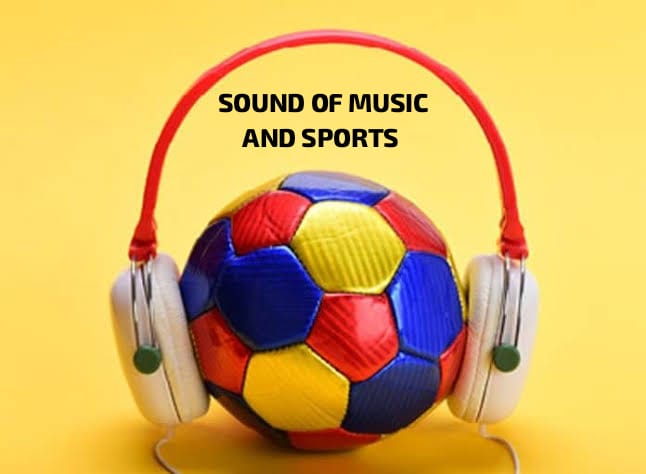Sound of music: The impact that music has on sport and exercise performance – We often observe athletes walking into the arena or stadium wearing headphones. Are they listening to music or are they just using it to block out all external noises? Or perhaps both? Ever asked yourself why that particular song or playlist motivates you to perform at the optimal level? This is probably because music has a significant impact on our sport and exercise performance and this is proven through scientific research as well.
Music has the ability to enhance motivation and improve mood during exercise, hence making it easier for individuals to push through fatigue and maintain energy levels. Listening to upbeat and energetic music has proven to be the most effective in this regard. This is because the tempo and rhythm in some genres of music can help athletes establish the desired pace or rhythm during exercise. For example, in sports that require a continued cadence such as cycling and running.
Sound of music: The impact that music has on sport and exercise performance
Often when individuals who work out or perform high intensity activities, they use music as a medium to achieve personal records in the gym or when they perform. For example, music can distract individuals from feelings of discomfort or fatigue when trying to achieve personal bests as it reduces the perception of pain and effort. This results in maximum endurance as well as peak performances.
In general, gyms, workout classes and individuals alone also listen to music while working out or playing a sport as music has the ability to elicit positive emotions, increase self-confidence and reduce anxiety before and during exercise or competitions.
Research on music therapy
Dr. Phil Maffetone who has studied music therapy over 30 years ago, explains how music plays a key role in brain research and injury treatment. Interestingly, research states that listening to music can affect one’s brain waves, which in turn improves one’s overall health. It can also, in some ways prevent an injury by reducing the stress reaction of the body. This is because music reduces stress hormones, which allow the healing process to proceed effectively. Music also has the ability to coordinate brain and muscle memory. In sports in particular, music impact athletes as Dr. Maffetone suggests how opting for a 5-minute power break during or before exercise or a match, is a proven way to tune into the body’s powerful alpha waves. As suggested by him, all a person has to do is 1) sit or lie down and get comfortable, 2) close their eyes, 3) place hands or crossed arms relaxed on upper abdomen, 4) breathe slowly-inhale 5-7 seconds and exhale slowly and last, 5) listen to music that you enjoy (using headphones is preferred). He recommends doing this twice daily for 5 minutes, once before a race or a workout and the second anytime an individual requires a mental re-energizer.

Figure- Psychological and physiological factors influence one another, creating an interrelated archetype for changes during exercise while listening to music.
The figure above highlights the interplay of music and exercise and how it affects all parts of an individual’s life. From having an improved mood, to dissociating from distractions and an overall improved physiological response.
An easy and cost effective therapy
Music provides as an easily obtainable, cost-effective intervention that enhances sport and exercise performance. Often, when you hear individuals say that I am “in the zone”, this means that their body is energized and functioning and they are in “auto-pilot” mode which requires minimal conscious effort. So, when music is paired with this state of flow, it can help one put aside all external distractions in order to concentrate and envision what they want to accomplish either while playing a sport or exercising.
Music is also said to have various benefits for both, athletes and exercisers. Several athletes mention how music has helped them in their sport. For example, Canadian sprinter Aaron Brown said, “If I play songs that remind me of a time where I was successful, and I realize I’ve done it before, it calms me down.” Another example is, Pro tennis player Naomi Osaka who listens to music before a tennis match to reduce performance inhibiting anxiety. Ex-pro swimmer Michael Phelps listened to music before racing to reduce distractions and get into the zone.
The impact of music on our brain
Music is also linked to the brains reward system and it changes the way one thinks and feels. When one listens to their favourite song, their brain releases dopamine, which continues to show the positive power of music.
Conclusion:
If you are wondering how you can use music to boost your performance whether it be in the gym or on the field, here are a few questions you can ask yourself before doing so-
- What mindset do I want this playlist to help me enter?
- What feelings do I want to activate?
- Does this song evoke positively powerfully those feelings and thoughts?
- Does this song make me feel energised, sad, calm or focused?
- What songs remind you of strength, power and performance?
- What songs elicit strong feelings and emotions – what songs inspire, motivate, energise, focus and/or calm you?
- Do you have a theme song that captures the essence of your competition?
Answering these questions can provide you with the type of playlist you can curate to achieve optimal levels of performance to use the benefit of the sound of music for your sport and exercise.
